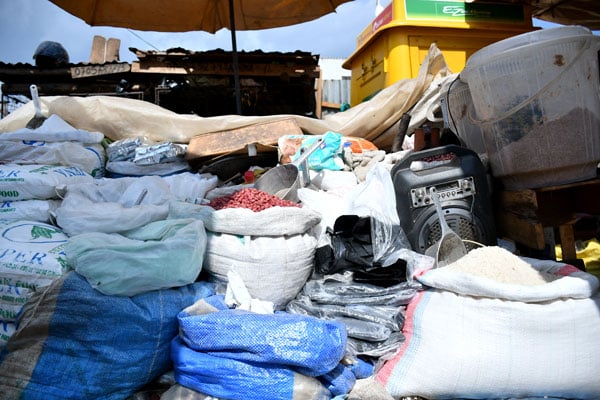Prime
Rise in education service fees pushes up inflation

Schools in February announced an increase in tuition fees and requirements which drove up inflation. Photo / File
What you need to know:
- At the beginning of the school term in mid February, schools announced an increase in tuition fees and requirements, which impacted the prices of goods
The increase in education service charges ranging from tuition, and scholastic material and uniforms pushed up inflation, which means that most Ugandans spent more in February than what they spent on the same goods in January.
The general increase in inflation was also a result of a rise in restaurant and accommodation services inflation, while an increase in food prices also contributed significantly.
Data released yesterday indicates that headline inflation rose to 3.4 percent in February from 2.8 percent, while core inflation increased to 3.4 percent from 2.4 percent.
Headline inflation relates to goods such as commodities like food and energy, while core inflation excludes food and energy prices.
While speaking during releases of the Consumer Price Index for February, yesterday in Kampala Ms Aliziki K. Lubega, the Uganda Bureau of Statistics (Ubos) director macroeconomic statistics, said increase in tuition fees, food, clothing and books needed every beginning of term were a big contributor to higher education services inflation, which fed into the general prices of other goods.
The new school term opened at the beginning of February with schools announcing an increase in tuition fees and school requirements.
Therefore, Ubos noted the increase in services inflation was due to education services, which registered an increase in inflation to 14.5 percent in February from 6.1, while restaurants and accommodation services inflation increased to 6 percent from 4.9 percent.
Ms Aliziki indicated that other service areas that registered increases included transport, whose inflation rose from 1.8 percent to 2.5 percent due to an increase in taxi fare charges for short distances under 50 kilometers, which rose to 2.6 percent from - 0.3 percent, while other goods inflation increased to 1.8 percent from 1.3 percent due to a rise in prices of beef, by 9.1 percent from 3 percent, and maize flour prices by -19.2 percent from -31.1 percent recorded.
Aliziki said annual food crops and related items inflation increased from 0.5 percent to 2.6 percent due to an increase in prices of cooking bananas, which rose by 7.1 percent from 1.4 percent, Bogoya prices rose by 3.2 percent from -12.5 percent.
Onion prices increased by 54.0 percent compared to 49.8 percent in January 2024.
During the period Energy Fuel and Utilities inflation increased to 8 percent from 7.4 percent due to an increase in firewood prices by 15.1 percent from 9.4 percent, while petrol and liquefied gas prices rose by 5.7 percent from 4.4 percent and -0.3 percent from - 6.2 percent, respectively.
Inflation by region
Fort portal registered the highest inflation of 5.4 percent from 3.7 percent in January, while Kampala High Income followed with 4.4 percent from 3.2 percent.
Aura registered a decline of 3.8 percent from 5.6 percent while Jinja slightly increased to 3.8 percent from 3.4 percent.
Gulu, at 2 percent and Kampala Middle Income and Mbale at 1.4 percent and 1.1 percent, respectively registered the lowest price increases.




